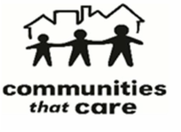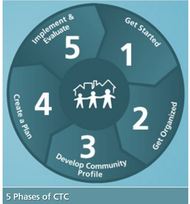|
|
The mission of the I-70 Corridor Communities that Care is to provide opportunities for our schools, families, and community at large through educational and economic outreach focusing on youth substance abuse prevention and safety.
In keeping with the Mission of BPRD we are proud to be active partners with the I-70 Corridor Communities that Care (I-70 CCTC) system. The I-70 Corridor Communities that Care (I-70 CCTC) is a coalition comprised of local stakeholders and community members along the corridor from Watkins to Deer Trail. The I-70 CCTC utilizes a 5-phase system to assess substance use among youth ages 12-18 and to identify risk and protective factors that are currently in place that provide upstream prevention against risky behaviors that lead to substance use. I-70 CCTC uses local, state, and regional data sources including the Healthy Kids Colorado Survey to identify ‘Risks’ and ‘Protective’ factors in our communities. Once ‘Risk Factors” are determined, information gathering begins helping the coalition recognize local protective factors that currently happen in our communities. Once the I-70 CCTC coalition has identified the effectiveness of the strategies in place, it will move forward with enhancements, if needed; while expanding the existing strategies, introduction of complementary tools or new strategies unique to our communities’ needs may be implemented. The I-70 Corridor Communities That Care effort involves change. Changing the way a community addresses norms, values and behaviors—and allocates resources—takes significant time and effort. It is important that the I-70 Corridor Communities That Care effort organize and involve all community members who have a stake in healthy futures for young people, by bringing together representation from all of those stakeholders—groups such as: elected officials; the business community; schools; public health officials; law enforcement; agencies and organizations serving local youth and families; the faith community; youth; parents; residents. The Communities That Care system will be modified to fit our youth needs through local community committees and support. We cannot make a difference without you. If you would like to help make a difference in your community, we would love to have you join us. |
5 Phases of CTCCommunities That Care (CTC) employs a proven, community-change process for reducing youth violence, alcohol & tobacco use, and delinquency – through tested & effective programs and policies
|
Key Leader BoardKey Leader Board members—the influential
community leaders who control resources and who support and oversee the Communities That Care effort, including securing needed resources for implementing the programs, policies and practices recommended by the Community Board as a result of the planning and assessment process |
Community BoardThe Community Board may be Advisory, The board’s findings serve as the foundation to inform prevention planning in the community, but with no specific agency bound to follow the board’s suggested initiatives. Decision-making The board is authorized to make decisions regarding allocation of funding and other resources.
|






